
Spotlight Porphyria
Welcome to Spotlight Porphyria where we feature all things porphyria! Including:
Porphyria Voices shares experiences, insights, and advice from the porphyria community.
What's UP Doc? Where porphyria experts take your questions.
Summing UP explains the latest research in easy-to-understand summaries
Meet your experts and advocates where we meet the people changing the world for porphyria.
…and more!
Join us to never miss a feature.
Search the blog

Safe Summer Travel with Cutaneous Porphyria: Sun-Avoidance Strategies That Work
Need to avoid the sun? Your fellow porphyria patients share their best tips and tricks for making the most of summer holidays when you have a cutaneous porphyria.

What Family Members of AHP Patients Should Know: High Levels, No Symptoms
This research looked at close relatives of people with acute hepatic porphyria (AHP). The relatives had never been tested or had symptoms of porphyria, but the study found that more than half of them had the gene for porphyria and a significant number had elevated levels of urine PBG and ALA.

When Accolades Fade: Discovering True Worth Through Porphyria
A powerful personal journey of living with acute intermittent porphyria (AIP)—and discovering true worth beyond accolades. If porphyria has changed your life, this story is for you.

Spring Sun Safety: Essential Sun Protection Tips for Cutaneous Porphyria Patients
Discover science-backed sun protection strategies for cutaneous porphyria (EPP, VP, PCT, CEP & HCP) this spring. Learn about UPF clothing, safe sunscreens, and smart sunlight avoidance techniques.
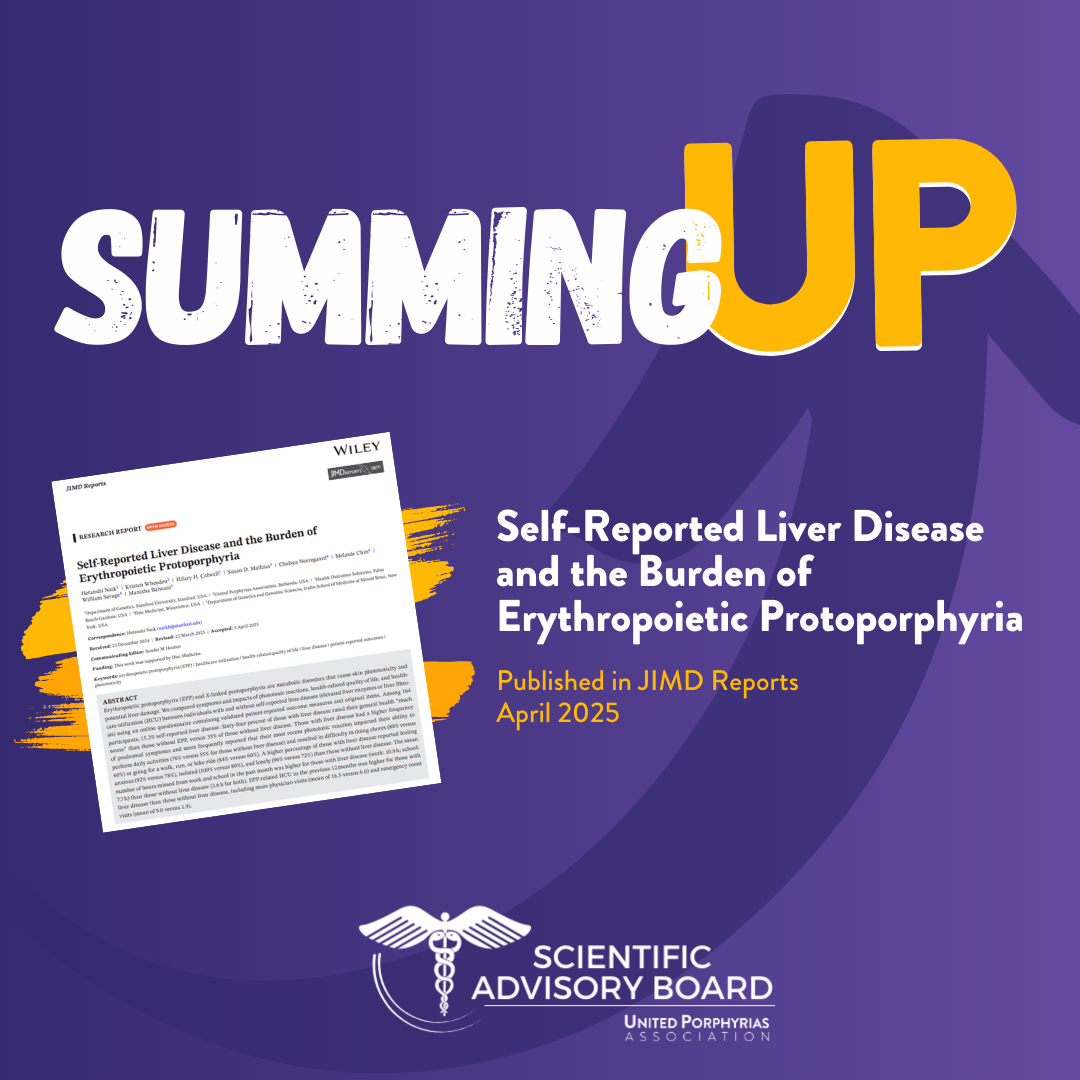
Living with EPP and Liver Disease: What We Learned from Patients
This study looked at the impact of liver disease on people with EPP by comparing the experiences of EPP patients with and without liver disease.

Promise of ‘All Fun and No Sun’ Gives Photosensitive Children the Chance to Enjoy Camp Experiences
Victory Junction, a year-round camp dedicated to enriching the lives of children with complex medical and physical conditions, will host the second annual Sun Escape Weekend in collaboration with Shadow Jumpers and The United Porphyrias Association May 1-4, 2025.
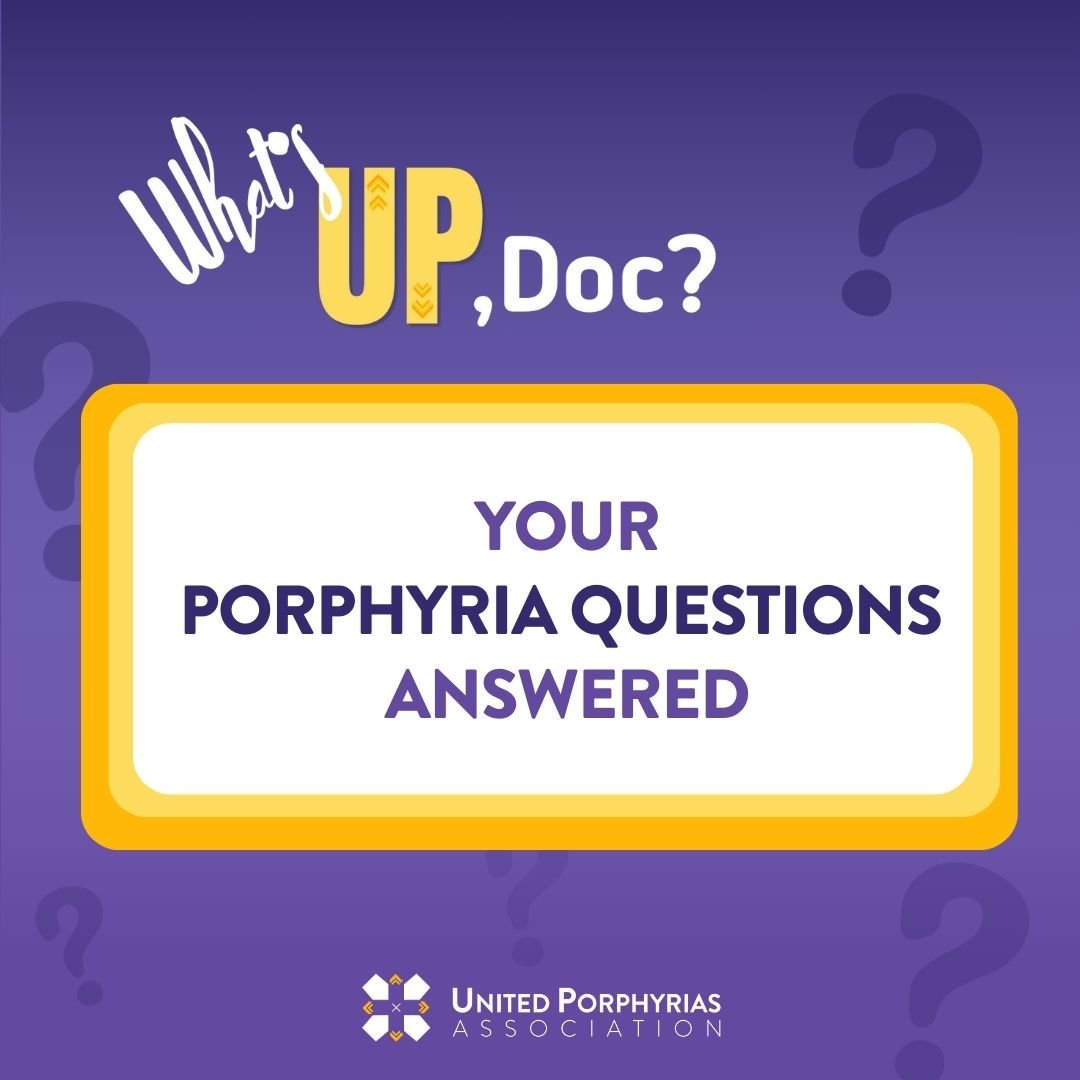
Recommendations for Hemin Preparation and Infusion
Question: Is there a way to make Panhematin infusions more comfortable?

Meet Lina Rebeiz, Porphyria Community Builder
"Things are so different once you meet other patients with porphyria"

Porphyrins and Fluorescence
Question: Does porphyrin in stool fluoresce under UV/Wood light?

Living in the Shadows: Elsie’s Journey with Congenital Erythropoietic Porphyria
The world isn’t designed for people with rare diseases, and convincing others that we actually need the support we ask for is a battle in itself.
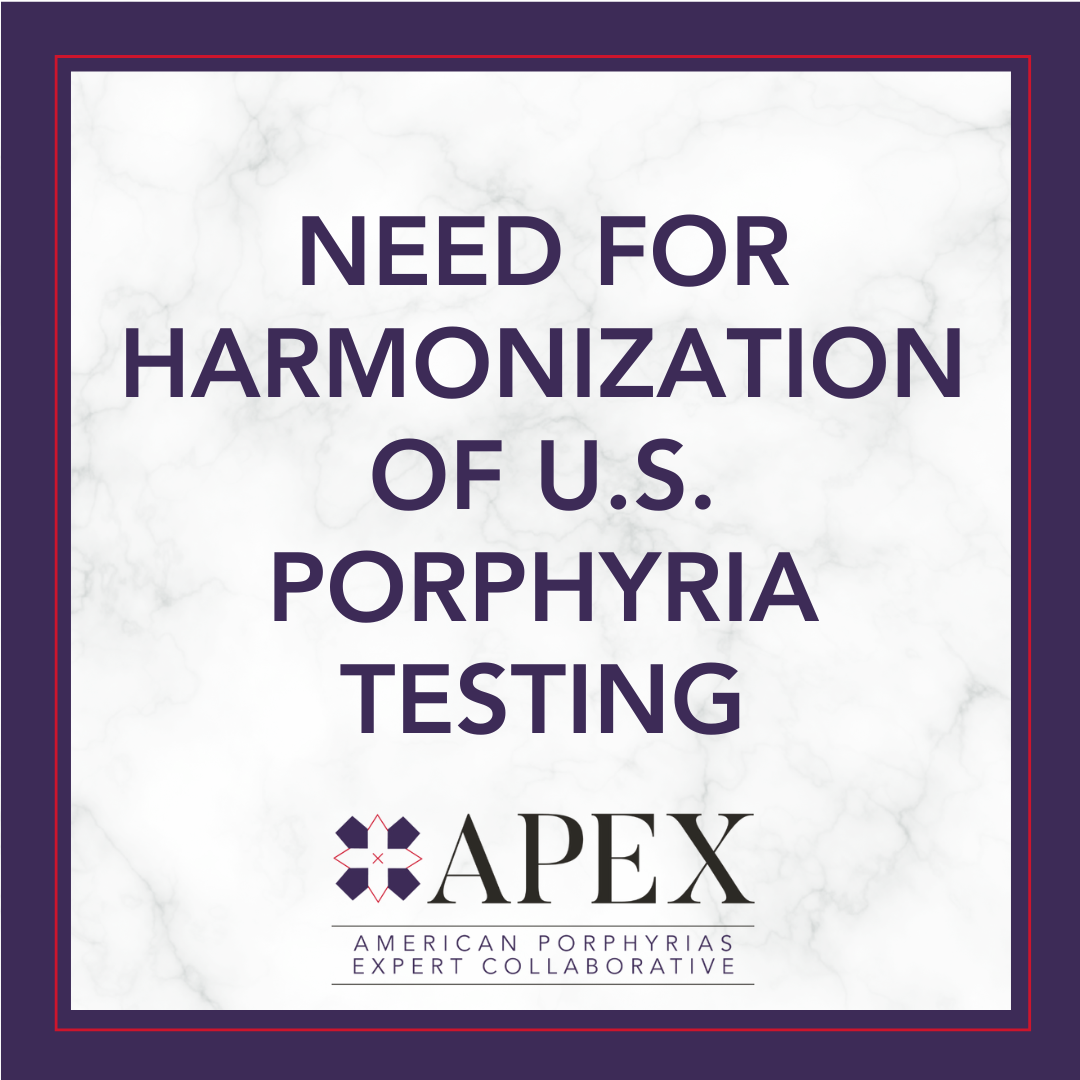
Statement from the American Porphyria Expert Collaborative
The American Porphyria Expert Collaborative (APEX) has issued a statement advocating for consistent and accessible porphyria testing to be available nationwide.
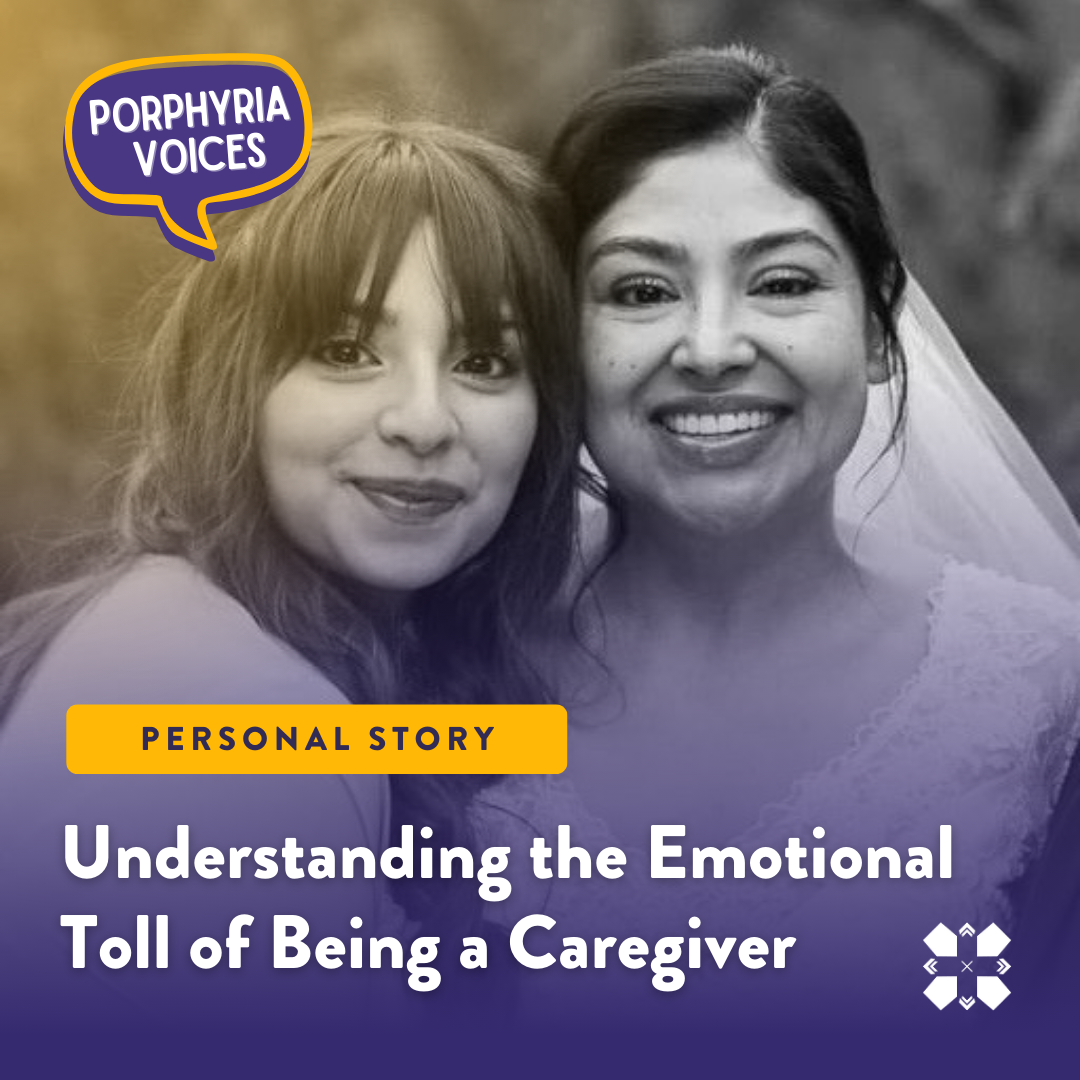
Understanding the Emotional Toll of Being a Caregiver for a Loved One with Porphyria
Being a caregiver is one of the most heart-wrenching and overwhelming roles a person can take on. The emotional and physical toll it exacts on both you and your loved one is often unspoken—yet, it profoundly shapes your mental and emotional landscape.

Meet Dr. Robert Desnick, Porphyria Expert
The Porphyrias Consortium allowed us to train the next generation of porphyria experts. We’ve worked so well together to carry out basic and clinical research, including multiple clinical treatment trials, that we wanted to continue our excellent collaborations and research.
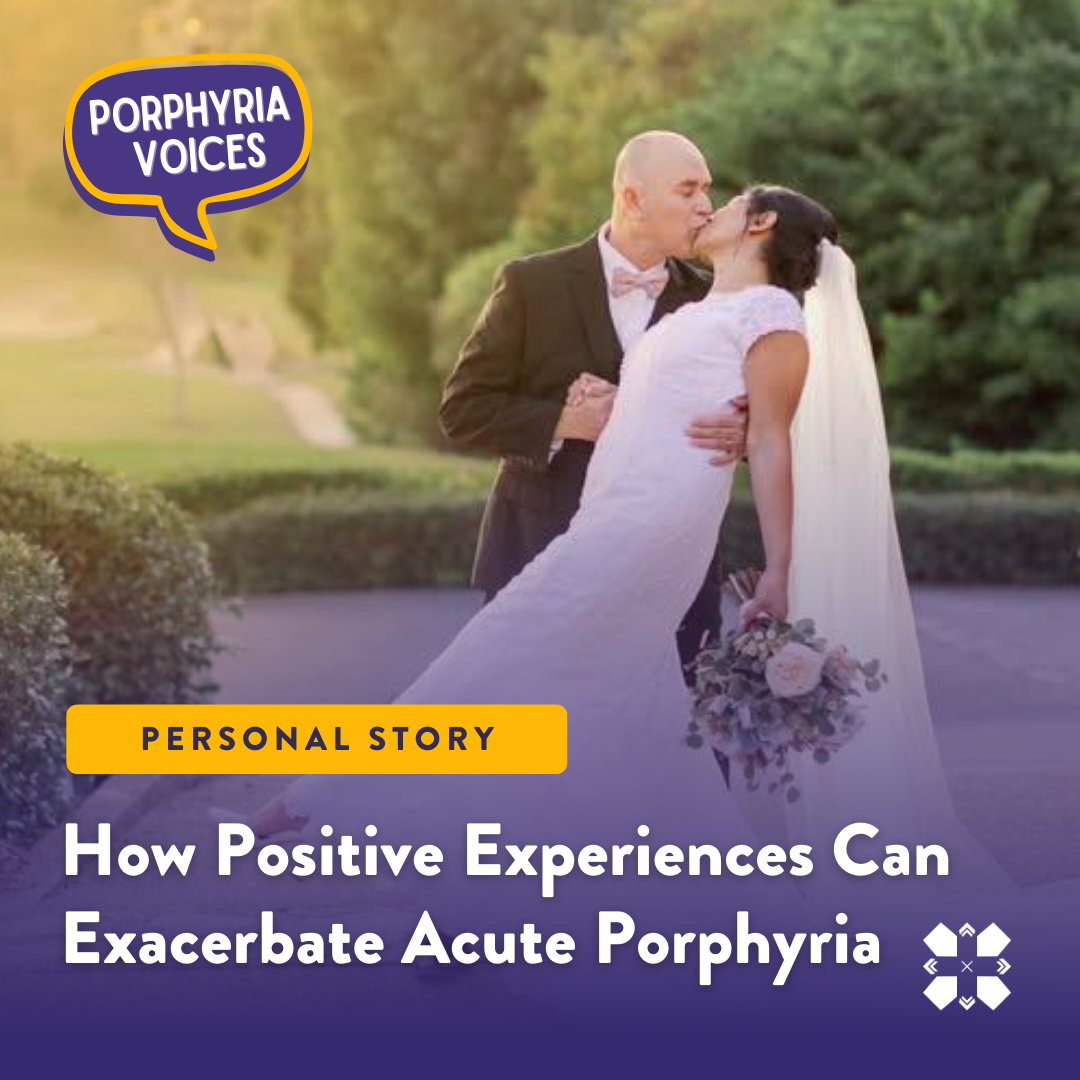
How Positive Experiences Can Exacerbate Acute Porphyria: Managing Stress and Symptoms
A few weeks ago, my husband Wilson and I celebrated our 25th wedding anniversary with a wedding vows renewal. While it was a fun and memorable celebration weekend, it left me feeling activated by the stress of it.

Treatments for Congenital Erythropoietic Porphyria
Question: When will we get a treatment for Congenital Erythropoietic Porphyria (CEP)?

Living with Erythropoietic Protoporphyria (EPP): A Personal Journey
“I Have Never Seen Anyone Washing Windows in the Rain”. Before being diagnosed with EPP, my next door neighbor said these exact words to me.

Take Care and Celebrate: Adapting the Holidays to My Porphyria
Diana Escobar (AIP) shares her tips and recommendations for enjoying the festive season without compromising your health.

Meet Dr. Makiko Yasuda, Porphyria Researcher
One thing I love about science is you learn something, then new information comes up and it opens up a whole new set of questions.
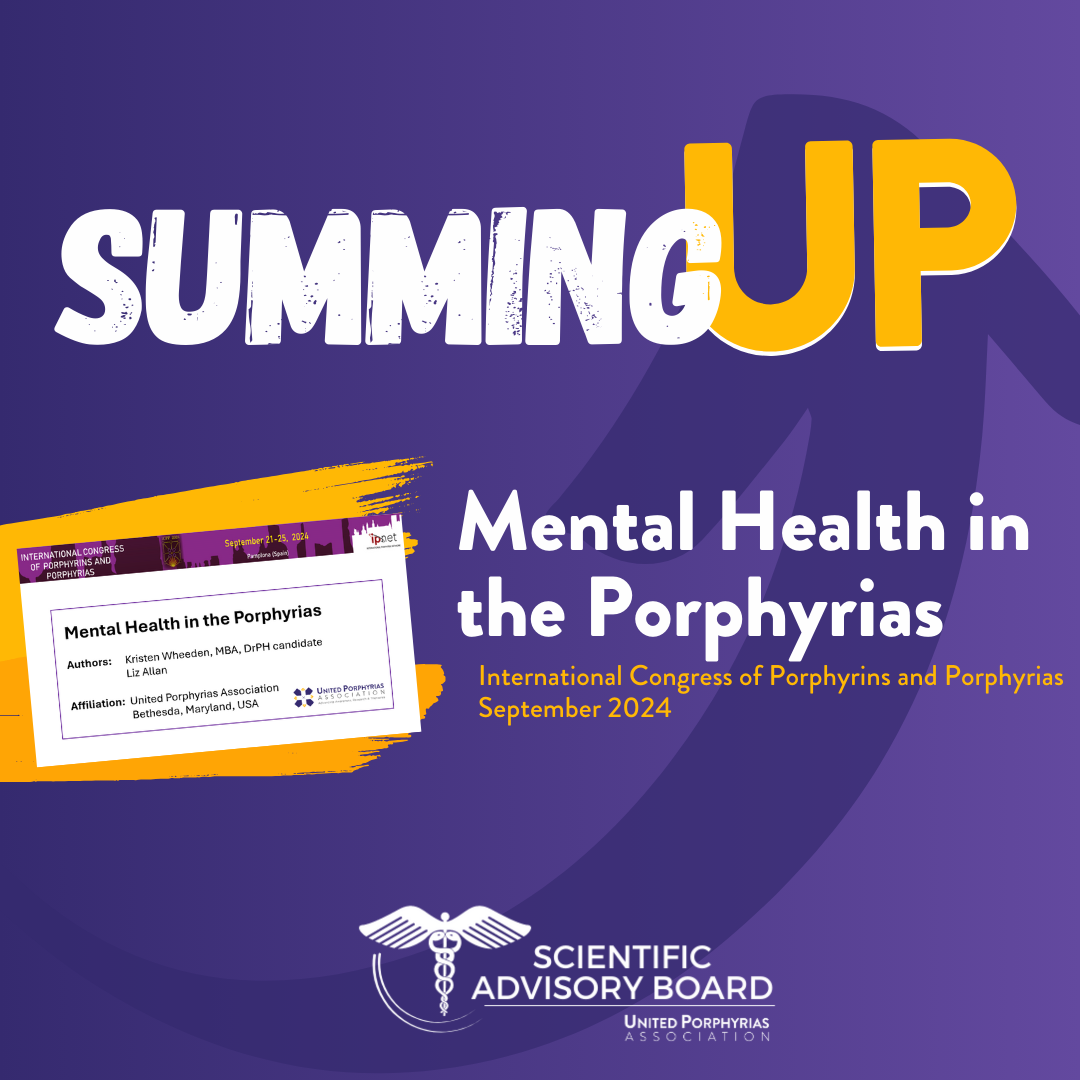
Mental Health in the Porphyrias
This study involved focus groups with porphyria patients to explore the emotional and psychological challenges they face. Participants discussed their lived experiences, shared coping strategies, and offered recommendations for additional support to improve their quality of life.

UPA Receives Prestigious CZI Grant
The United Porphyrias Association (UPA) is honored to announce its selection as a recipient of the Chan Zuckerberg Initiative’s (CZI) Rare As One grant.





